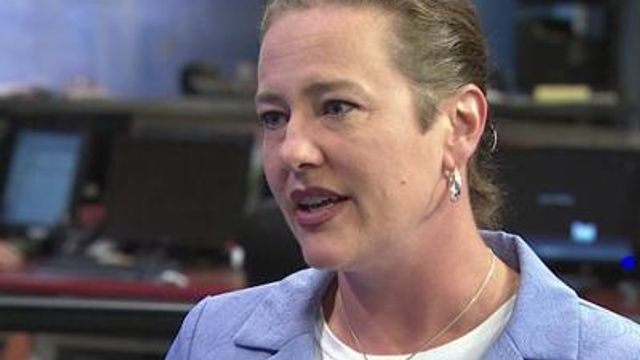Abortion changes become law
After passionate debate, mostly from opponents, the state Senate voted today to override Gov. Bev Perdue's veto of H854, a bill that imposes new requirements on abortions. It now becomes law.
Posted — UpdatedAfter passionate debate, mostly from opponents, the state Senate voted just after noon today to override Gov., Bev Perdue’s veto of H854, a bill that imposes new requirements and restrictions on women who seek abortions and doctors who provide them.
The House overturned the veto earlier this week, so the bill now becomes law. It goes into effect in 90 days.
The law, titled the “Woman’s Right to Know Act,” requires a 24-hour waiting period before an abortion. It requires the patient to undergo an ultrasound and be shown the images, while requiring the provider to explain the age, size, position, and physical features of the fetus. The patient must be offered the opportunity to listen to the fetal heartbeat. She must sign a document indicating whether she chose to look or listen, and the doctor must keep the document for seven years.
Additionally, doctors, who are already required by the state’s informed-consent law to provide medical details about the procedure, will now be required to tell a woman seeking an abortion that alternatives like adoption are available, that she may be able to get medical assistance, welfare, and food stamps to help her keep her child, and that the father of the child can be sued for child support.
The new law also gives standing to a wide range of people to sue a doctor for violations, including the siblings or parent of a patient, her current or former doctor, and the father of the fetus. No exception is made for cases of rape or incest, though the bill’s supporters say other state laws should effectively prevent a rapist from bringing suit under the new measure.
Senate sponsor Warren Daniel, R-Burke, said the state imposes a one-year waiting period for divorce, and a three-day waiting period for home refinancing loans.
Any inconvenience posed by waiting “24 hours to terminate a life,” Daniel said, “is “inconsequential. Every life has dignity and value, and every person bears the mark of almighty God.”
Daniel said the bill is expected to reduce abortions in NC by 3,000 per year, but it does not outlaw them. “If you believe abortion should be safe, legal, and rare” he said, referring to a common Democratic theme on the issue, “there’s no reason not to support this bill.”
A long line of Democrats rose to argue against the bill.
“You’re attributing to women the inability to make one of the most important decisions of her life,” said Sen, Ellie Kinnaird, D-Chapel Hill.
“It’s a serious, serious assault on women,” said Sen. Linda Garrou, D-Forsyth. “I’ve never heard as many bellicose statements about ‘get government out of our way,’ ‘get government out of our lives’,” she said “and yet you want to make a decision for me, for women in general, for your wife, for your daughter?”
Purcell talked about watching patients die from self-induced abortions in the days before they were made legal. “If you succeed in making it more expensive or more difficult for a woman to have a pregnancy terminated by placing more and more barriers in her way, you will see an increase in self-induced or back-alley abortions, especially among low-income North Carolinians,” he warned.
Purcell’s concerns were echoed by practicing surgeon Sen. Eric Mansfield, D-Cumberland, who said the state’s informed-consent laws already require full disclosure of medical risks and alternatives.
Mansfield called Republicans “hypocritical” for protesting government intrusion into medicine under federal health-care reform, while requiring it for abortion. Mansfield said the measure violates the privacy of the doctor-patient relationship by dictating what the doctor must say. “It’s no wonder the North Carolina Medical Society is against this bill,” he said, “and that’s not a left-leaning organization.”
Other Democrats argued the new law goes too far because it doesn’t offer exceptions to the requirement for cases of rape or incest.
Sen. Doug Berger, D-Franklin, called the bill “extreme.” “If my daughter had been raped, that she would then be required to go through this process is highly offensive,” he said, noting that a similar law in Texas does provide for exceptions.
And Sen. Josh Stein, D-Wake, said the measure will be hurtful to parents who have to terminate pregnancies for health reasons, and is disrespectful to women in general. “This bill says ‘No, no, little lady - if this is the choice you’re making, you couldn’t possibly have made an informed decision,’” Stein said.
Republicans stayed quiet during the debate, allowing Democrats to make their speeches against the bill without engaging them in arguments. But at the very end, Sen. Jim Davis, R-Macon, was moved to speak.
Davis’s voice was choked with emotion as he talked about his adopted son, now 35. “I will be forever grateful to a woman who decided not to abort,” he said. “For people to suggest that 24 hours is an onerous requirement – I just can’t accept that. My son is worth 24 hours.”
The veto was overridden by a vote of 29-19. All Democrats voted against it.
Generally speaking, the Senate needs 30 votes out of 50 – three-fifths – to override a veto. But the two Republicans who did not support the proposal, Sens. Stevens and Bingham, were both granted excused absences today.
That brought the number of voting members down to 48 instead of 50, so the number of votes needed for an override dropped from 30 to 29 - the number of Republicans who supported it.
Copyright 2024 by Capitol Broadcasting Company. All rights reserved. This material may not be published, broadcast, rewritten or redistributed.





